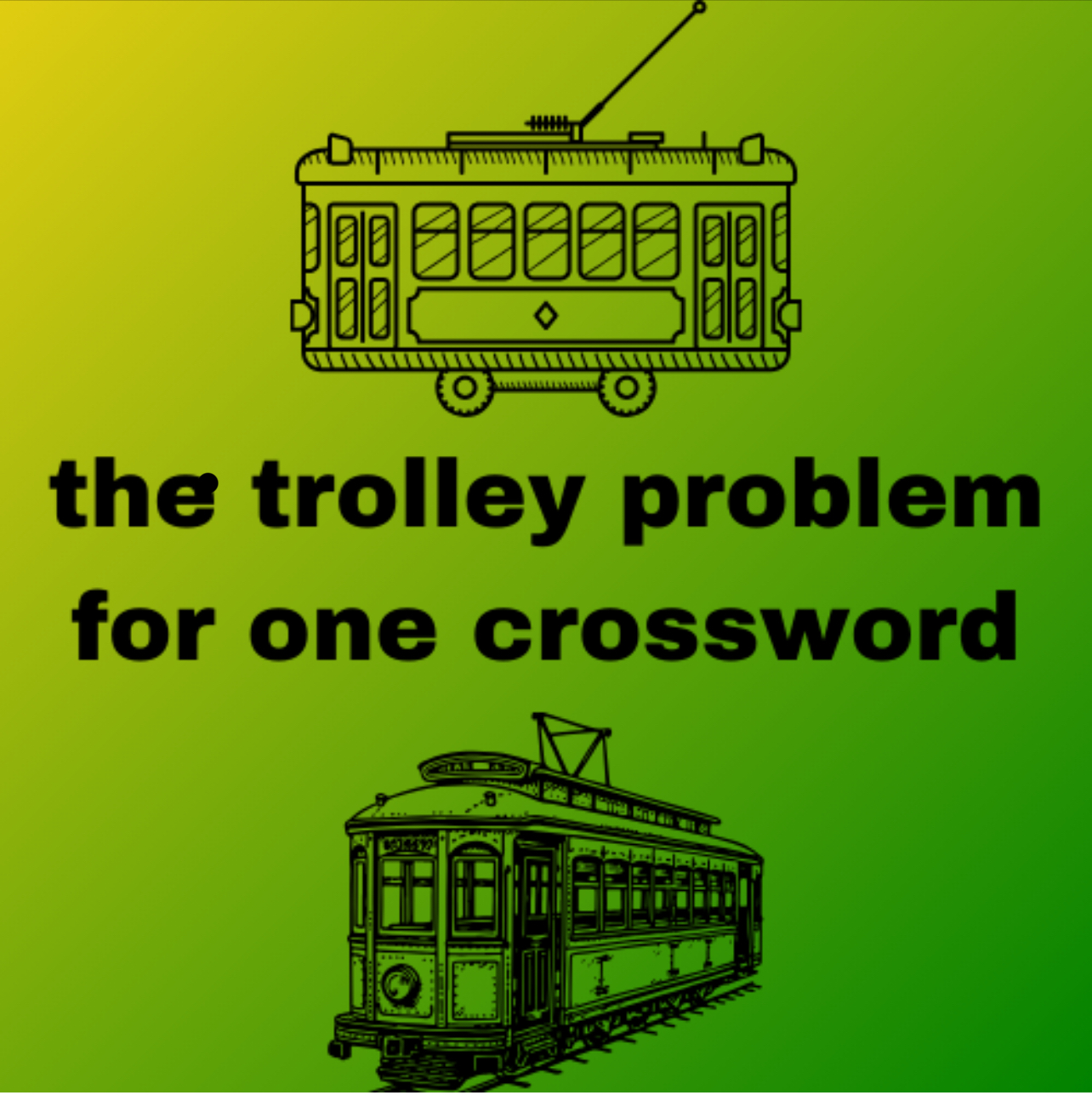- June 15, 2024
The Trolley Problem for One Crossword A Comprehensive Guide

The concept of the trolley problem has fascinated ethicists and the general public alike. This moral dilemma poses challenging questions about ethics, decision-making, and the value of human life. When it comes to the intersection of philosophy and puzzles, “the trolley problem for one crossword” is an intriguing fusion that not only tests your ethical reasoning but also your word-solving skills. In this article, we will explore the origins of the trolley problem, delve into its application in crossword puzzles, and provide tips on solving such crosswords effectively.
What is the Trolley Problem?
The trolley problem is a thought experiment in ethics and moral psychology. It was first introduced by the philosopher Philippa Foot in 1967 and later expanded upon by Judith Jarvis Thomson. The basic scenario involves a trolley heading towards five people tied to a track. You have the power to pull a lever to switch the trolley onto another track, where only one person is tied. The dilemma is whether to take an action that results in the death of one person to save five or do nothing and allow the five to die.
The Trolley Problem in Modern Ethics
- Utilitarian Perspective: Utilitarians argue that the morally right action is the one that maximizes overall happiness or minimizes suffering. In the trolley problem, this perspective would support pulling the lever to save the greater number of people.
- Deontological Perspective: Deontologists focus on the morality of actions themselves rather than the consequences. From this viewpoint, some may argue that it is wrong to actively cause harm, even if it results in a better overall outcome.
- Virtue Ethics: This approach emphasizes the character and virtues of the moral agent rather than specific actions. A virtue ethicist might consider the compassion and bravery involved in making such a difficult decision.
Applying the Trolley Problem to Crosswords
“The trolley problem for one crossword” takes this philosophical dilemma and translates it into a puzzle format. These crosswords not only challenge your vocabulary but also your ethical reasoning skills.
Key Features of Trolley Problem Crosswords
- Ethical Scenarios: Clues often involve ethical dilemmas similar to the trolley problem.
- Complex Solutions: Answers require not only word knowledge but also understanding of ethical principles.
- Philosophical References: Expect references to famous philosophers and ethical theories.
Tips for Solving Trolley Problem Crosswords
- Understand the Basics: Familiarize yourself with the basic trolley problem and its variations.
- Study Ethical Theories: Knowledge of utilitarianism, deontology, and virtue ethics can provide clues.
- Look for Context: Contextual clues often hint at the ethical aspect of the answer.
- Expand Your Vocabulary: A broad vocabulary is essential for any crossword enthusiast.
- Practice Regularly: The more you practice, the better you’ll become at spotting patterns and solving clues quickly.
The Educational Value of Trolley Problem Crosswords
These crosswords are not just puzzles; they are educational tools that encourage critical thinking and ethical reflection. By engaging with these puzzles, solvers can improve their problem-solving skills and deepen their understanding of moral philosophy.
Conclusion
“The trolley problem for one crossword” is a unique and engaging way to explore complex ethical dilemmas. By incorporating the trolley problem into crossword puzzles, these challenges offer both intellectual stimulation and ethical education. Whether you are a philosophy student, a crossword enthusiast, or someone looking to sharpen their critical thinking skills, tackling these puzzles can be a rewarding experience. Remember to consider both the ethical implications and the linguistic clues as you solve these fascinating crosswords.
By focusing on the key aspects of the trolley problem and its application in crossword puzzles, you can enhance your understanding and appreciation of both disciplines. Happy puzzling!